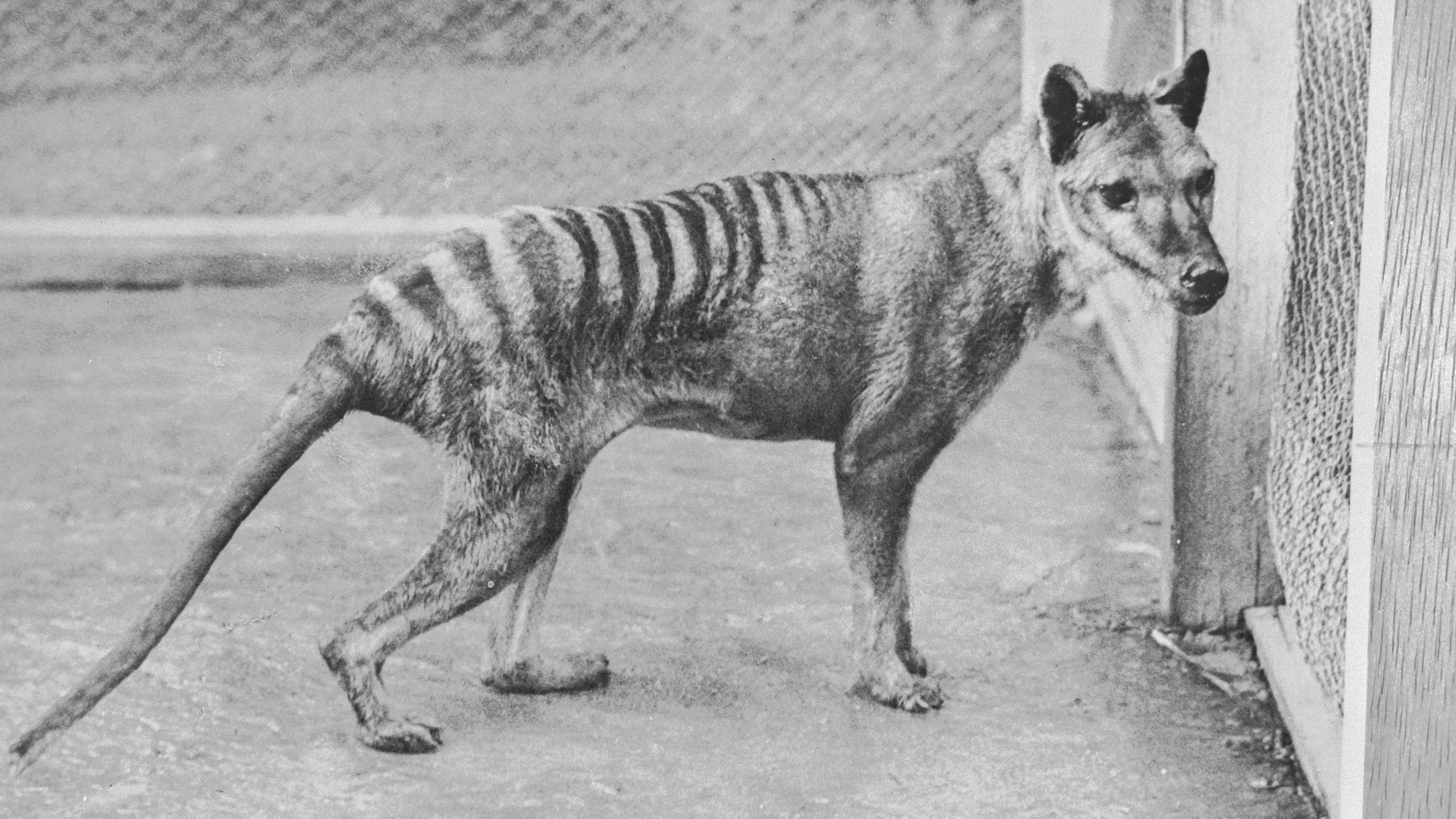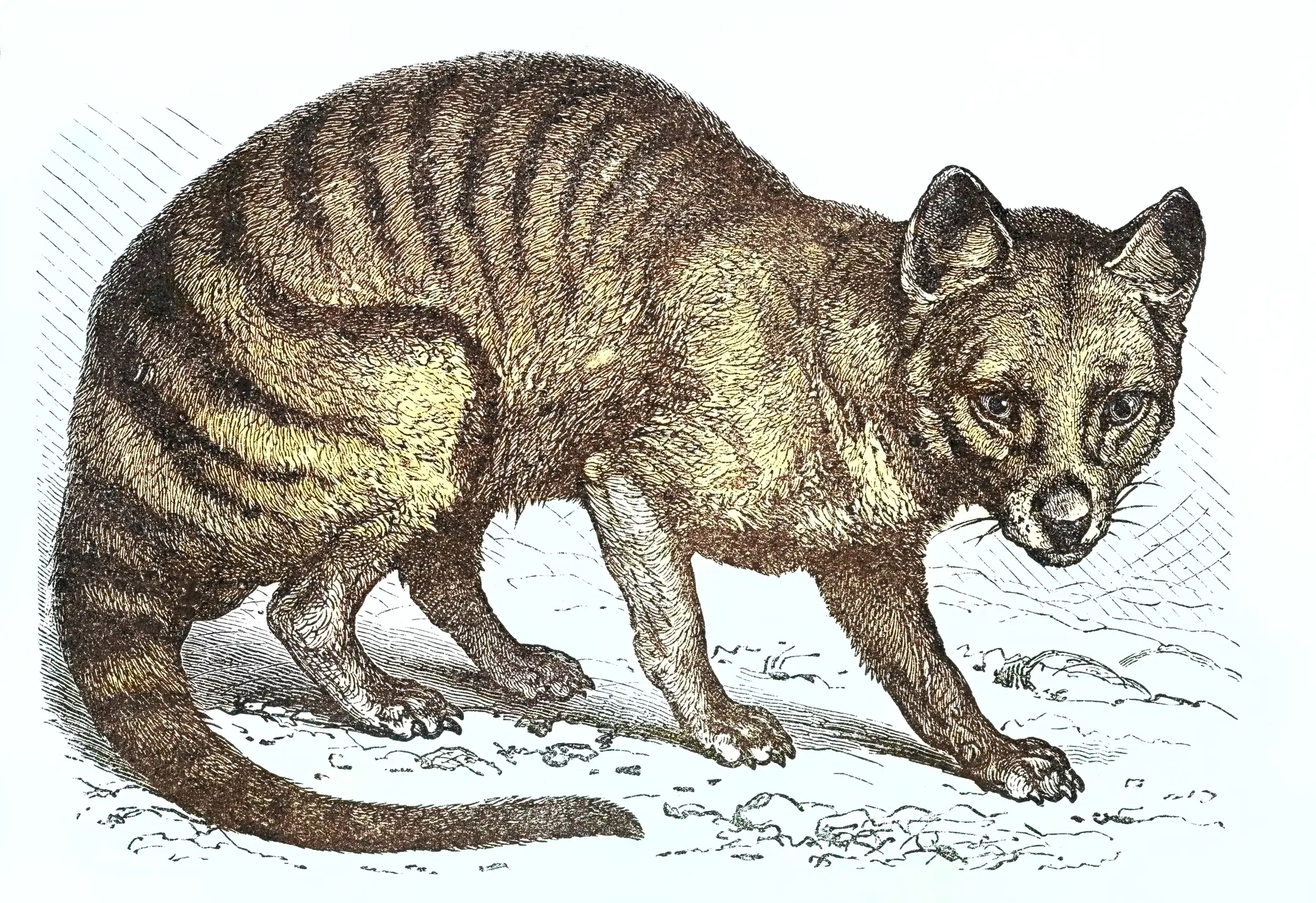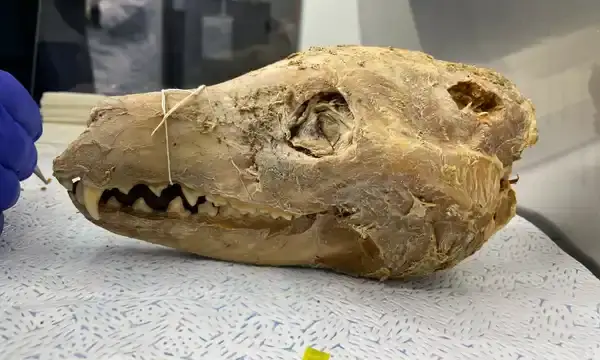
Scientists working on a groundbreaking project to bring the Tasmanian tiger back to life have made a significant breakthrough.
The thylacine, also commonly known as the Tasmanian tiger or Tasmanian wolf, is an extinct carnivorous marsupial that was native to the Australian mainland and the islands of Tasmania and New Guinea.
The word extinct is probably one we most associate with dodos and dinosaurs, and there's a permanence around it which means most aren't worried about ever having to experience Jurassic Park in real life.
Other than three minutes of fame in 2003, when a clone of the pyrenean ibex was briefly brought back to life - making it the only animal to go extinct twice, scientists have never been successful with the 'de-extinction process'.
Advert
However, technology has come a long way in the last 30 years and now scientists are seemingly edging closer to bringing some animals back from the dead, with some predicting that wooly mammoths could make a return by 2027. As long as they're like Manny from Ice Age, that's OK with us.
Fortunately, scientists in Australia seem to be focusing on the less-deadly extinct species, such as the Tasmanian tiger, which is a close relative of the Tasmanian Devil (not from Looney Tunes).

The species, which possess kangaroo-like abdominal pouches, has been the focus of a group of researchers from the University of Melbourne, along with the company Colossal Biosciences, since 2022.
Thylacine Integrated Genetic Restoration Research (TIGRR) is led by University of Melbourne marsupial evolutionary biologist professor Andrew Pask.
Pask and his team planned to bring the carnivorous marsupials back to life, having initially resurrected the function of a single Tasmanian tiger gene inside a mouse embryo in 2008.
He said: "We have an amazing ability to sequence and assemble damaged DNA fragments from museum specimens and remains. We have made huge advances in stem cell biology and our ability to make animals from single cells.
"And we have made giant leaps forward in our ability to edit DNA. All of these things combined make a project like this feasible today."
Late last year, scientists also uncovered a shockingly well-preserved head of the extinct Tasmanian tiger in a bucket, which has helped to accelerate their plans.

The significance of this 110-year-old discovery is that the head contained ribonucleic acid (RNA) molecules, which carry the sort of genetic information that scientists presumed were gone forever, and will be crucial in reconstructing the marsupial's genomes.
All signs point towards success in this project, so we could soon be welcoming the Tasmanian tiger back for good.
Topics: Science, Environment, Australia, Technology
